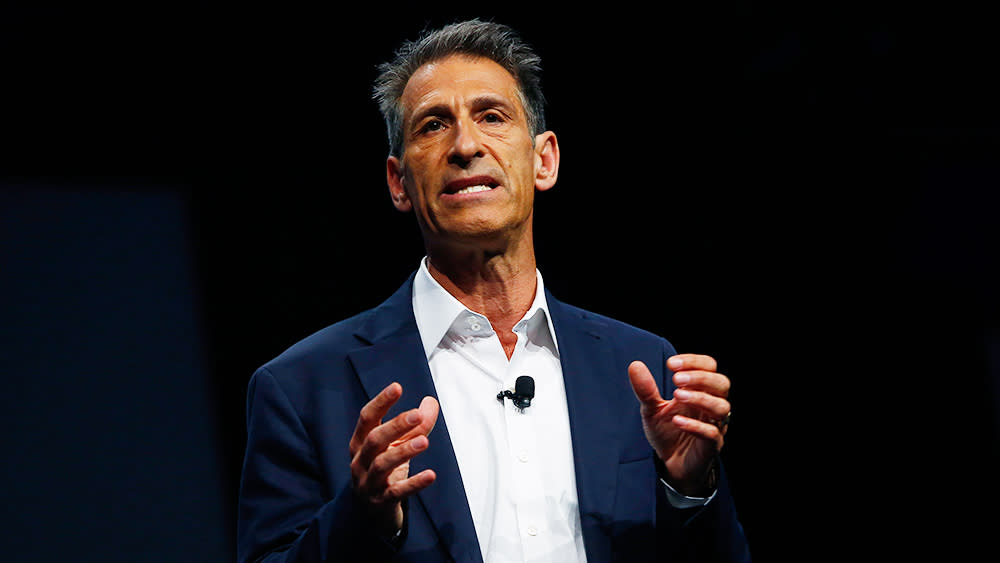Sony’s Michael Lynton on Email Hack Lessons: Use the Phone More

The devastating cyber attack that brought Sony to its knees a year ago did provide some painful lessons, Michael Lynton acknowledged at Business Insider’s Ignition conference on Wednesday.
The hack laid the inner workings of the company bare, exposing film budgets and, in the case of Sony Pictures chief Amy Pascal and producer Scott Rudin, a series of racially insensitive exchanges that set off a firestorm of media coverage.
Twelve months later, Pascal has been forced out, replaced by Tom Rothman, the former head of Fox’s film division, but Lynton has remained on board as Sony Entertainment CEO.
“As a culture…we’ve become over-reliant on email,” said Lynton. “There are a lot of things that should be in phone conversations that people are now randomly putting into emails.”
In the wake of the cyber attack, people at the studio have become more careful about what they put in messages, he said.
“People are a little bit more moderate in the way they are expressing themselves,” said Lynton, but he predicted that would change and people would grow less reserved over time.
“I’m sure people are saying things probably they shouldn’t,” he said. “It is the entertainment business.”
Lynton said that the focus for many studios has been on beefing up their cyber security. That’s important, he said, but he said it was equally critical to have connections to law enforcement agencies such as the FBI.
“There are plenty of places to call, but you need to know who to call,” said Lynton.
The hack on Sony was believed to have been launched by North Korea in retaliation for the studio’s plans to release “The Interview,” a raunchy comedy that depicted the assassination of the country’s dictator Kim Jong-Un. Terrorist threats forced Sony to scrap a traditional theatrical release in favor of offering the movie for sale on digital platforms and in some art house theaters. The film was a big seller, but Lynton said that the numbers it put up should not be used as a model for how most films would perform if they were made available on home entertainment platforms earlier. As it stands, most movies have to wait 90 days after they debut in theaters before they launch on demand or on disc.
Lynton noted that the studio didn’t have time to create a well-thought-out marketing campaign for the movie and used services like Google that were just starting to provide films for rent and sale.
“A lot of people bought the movie out of patriotism,” he said. “I’m not sure that if you were to go out and release a movie day and date with theatrical that this is the way you would do it.”
Beyond the hack, Lynton said the movie business was changing. Digital players like Netflix have begun producing films and consumers have grown accustomed to having oceans of content available to stream. That explosion in content providers and platforms hasn’t fostered a rising generation of cinephiles, he argued.
“The more choice and the more availability doesn’t actually mean that you’re going to watch it and you’re going to listen to it,” said Lynton, who believes younger consumers have grown less interested in films made before 1995.
Lynton said people are telling themselves, “I don’t need to see ‘The Wizard of Oz’ now. It’s not going anywhere.”
In order to grow the film business, studios have become increasingly reliant of foreign markets such as Russia and China. That means that films, once believed to be the largest exporter of American values, have grown more multi-cultural in their make-up.
“We pull back a little bit on the American jingoism,” said Lynton.
Related stories
Hollywood Reporter Slapped with Defamation Suit over Sony Hack Story
Cyber Attacks on the Rise in Media Biz Since Sony Hack: Survey (Exclusive)
Sony Hack, One Year Later: Is Hollywood Prepared for the Next Attack?
Get more from Variety and Variety411: Follow us on Twitter, Facebook, Newsletter
